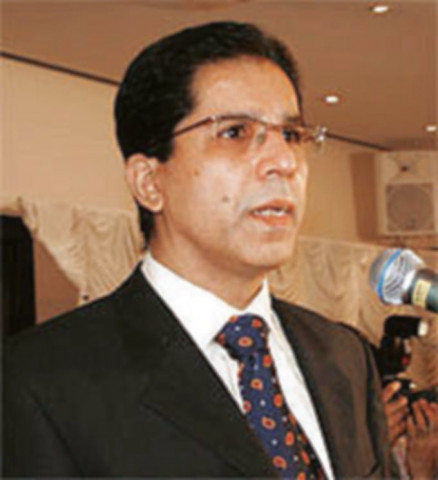Scotland Yard called in to lead investigation
British officials warn bloody struggle between political factions in Karachi on its way to Britain after murder.

Scotland Yard called in to lead investigation
The move came after British officials warned that a bloody struggle between political factions in Karachi was on its way to Britain.
Security sources said that the murder inquiry into Farooq’s death had been taken over by Scotland Yard’s Counter-Terrorism Command, which investigates political assassinations. MI5 is also likely to be called in to help. Scotland Yard has appealed for witnesses to the crime.
Detectives in London have not ruled out the possibility that Dr Farooq was killed in a random mugging. However, a political motive could spark political clashes in Karachi or undermine the stability of Pakistan’s governing coalition, which includes the MQM.
His death on Thursday night, outside his home in north London, took place as party members were preparing to mark the birthday of their leader Altaf Hussain the next day. And the party believes that Dr Farooq was murdered for political reasons.
Speaking to The Daily Telegraph, Federal Minister for Overseas Pakistanis Farooq Sattar said that the timing suggested a political motive. “The date looks like it was selected by design. We are trying to keep a lid on speculation. Conspiracy theories could provoke more trouble,” he said.
Mohammad Anwar, a party member in London, said that the leadership had received threats. “Because we did not find any evidence of robbery, we feel that there may be an element of conspiracy and therefore, we can think that this was an assassination,” he said.
Karachi remained in a lockdown following Dr Farooq’s murder in London early Friday morning. Political leaders have called for calm during the 10 days of mourning announced by the MQM. Prime Minister Yousaf Raza Gilani said: “It was a great loss to the party and the family.” Traders and bus drivers in Karachi stayed at home on Friday. Streets were deserted as many people feared a slide into renewed ethnic violence.
“This has been going on here for years and it’s not a surprise to see something happen in London,” said a senior counter-terrorism official in Karachi, speaking on condition of anonymity. “These networks extend a long way and are very well developed. It is impossible to tell who is responsible,” he said.
Published in The Express Tribune, September 19th, 2010.


















COMMENTS
Comments are moderated and generally will be posted if they are on-topic and not abusive.
For more information, please see our Comments FAQ